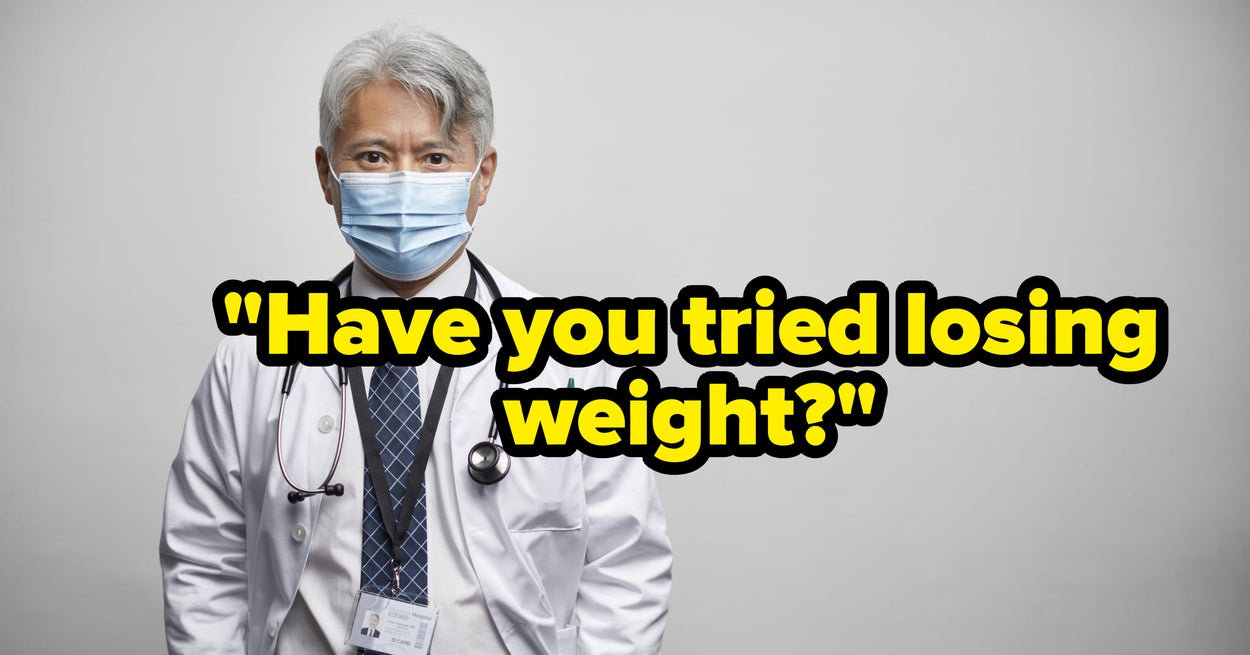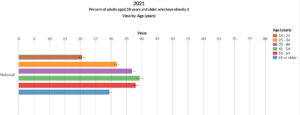Misinformation on obesity refers to inaccurate or misleading information about the causes, prevention, and treatment of obesity. Obesity is a complex medical condition that results from a combination of genetic, environmental, and behavioral factors, and it can have serious health consequences, including an increased risk of heart disease, diabetes, and certain cancers. Unfortunately, there is a lot of misinformation and myths surrounding obesity, which can make it difficult for individuals to make informed decisions about their health. Some common examples of misinformation on obesity include claims that certain diets or supplements can cure obesity, that obesity is solely the result of poor lifestyle choices, and that weight loss is simply a matter of willpower. It is important to seek out accurate and evidence-based information from reputable sources when it comes to managing obesity and making informed decisions about your health.

It’s crucial to acknowledge that the media often portrays obesity in a way that reinforces harmful stereotypes and fatphobia. This is especially apparent on social media platforms, where individuals with obesity are frequently subjected to ridicule and harassment. Unfortunately, this negative representation can also manifest in the medical field, where patients with obesity may be dismissed or blamed for their symptoms due to their weight.
Social media platforms can contribute to the spread of misinformation on obesity, but individuals can combat this issue by critically evaluating information found on social media, seeking information from reputable sources, and consulting with healthcare professionals for personalized advice and support. By raising awareness of the potential risks associated with misinformation on obesity and taking steps to promote accurate and helpful information, we can work towards a better understanding of this complex condition and support those who are affected by it.
It is also important to debunk common myths surrounding obesity. For example, readiness does not predict weight loss or improve results among those seeking weight loss treatment, physical education classes do not seem to counteract obesity among children, there is no evidence to support that breastfeeding prevents obesity, and sexual activity does not burn a significant amount of calories.
Obesity is a medical state marked by an excessive buildup of body fat that may negatively impact health. It is commonly identified by having a body mass index (BMI) of 30 or greater, which is determined by dividing a person’s weight in kilograms by the square of their height in meters. Obesity is considered a chronic disease and can lead to numerous health problems such as cardiovascular disease, diabetes, certain types of cancer, and musculoskeletal disorders. It can also hurt mental health and quality of life.
Obesity can result from a complex interaction of genetic, environmental, and behavioral factors. It is often caused by a combination of a high-calorie diet, a sedentary lifestyle, and genetic factors that affect metabolism and appetite control. Obesity can be managed through a combination of lifestyle changes, such as healthy eating habits and regular physical activity, and medical interventions, such as medications and weight-loss surgery.
Data by age:
National vs. Rhode Island


Preventing obesity involves making healthy lifestyle choices, including maintaining a healthy diet, engaging in regular physical activity, limiting sedentary behaviors, getting enough quality sleep, managing stress, avoiding smoking and excessive alcohol consumption, and seeking medical advice and support for any underlying health conditions. By adopting healthy habits and making lifestyle changes, individuals can reduce their risk of developing obesity and its associated health problems.
Myths vs Facts
- Myth 1: Weight loss only occurs when you feel “ready” for it. Healthcare professionals should assess a patient’s diet readiness.
- Fact: Research shows that readiness does not predict weight loss or improve results among those seeking weight loss treatment.
- Myth 2: Current physical education classes effectively prevent childhood obesity.
- Fact: Physical education classes do not seem to counteract obesity among children.
- Myth 3: Breastfeeding can prevent future obesity in breastfed babies.
- Fact: Although breastfeeding has benefits for both mother and child, there is no evidence to support that it prevents obesity.
- Myth 4: Sexual activity burns up to 300 calories per person.
- Fact: On average, sexual activity burns only about 1/20 of that amount and is not significantly different from resting on the couch.
In conclusion, social media platforms can contribute to the spread of misinformation on obesity, which can lead to confusion, stigma, and harm to individuals affected by this condition. The promotion of fad diets and supplements, the spread of false or sensationalized information, the echo chamber effect, and the perpetuation of stigma and discrimination are some of how social media can contribute to the problem. However, individuals can combat this issue by critically evaluating information found on social media, seeking information from reputable sources, and consulting with healthcare professionals for personalized advice and support. By raising awareness of the potential risks associated with misinformation on obesity and taking steps to promote accurate and helpful information, we can work towards a better understanding of this complex condition and support those who are affected by it.
Reference
Centers for Disease Control and Prevention. (2022, May 17). Childhood obesity facts. Centers for Disease Control and Prevention. Retrieved February 22, 2023, from https://www.cdc.gov/obesity/data/childhood.html
Centers for Disease Control and Prevention. (n.d.). DNPAO data, trends and maps: Explore by topic. Centers for Disease Control and Prevention. Retrieved February 22, 2023, from https://nccd.cdc.gov/dnpao_dtm/rdPage.aspx?rdReport=DNPAO_DTM.ExploreByTopic&islClass=OWS&islTopic=&go=GO
MediLexicon International. (n.d.). 7 myths about obesity: Separating fact and fiction. Medical News Today. Retrieved February 5, 2023, from https://www.medicalnewstoday.com/articles/255718
Myths, presumptions, and facts about obesity | Nejm. (n.d.). Retrieved February 23, 2023, from https://www.nejm.org/doi/full/10.1056/NEJMsa1208051
Www.facebook.com/gistwheel. (2021, January 23). 29 instances of doctors being fatphobic that should enrage you. GISTWHEEL. Retrieved February 5, 2023, from https://gistwheel.com/2021/01/23/29-instances-of-doctors-being-fatphobic-that-should-enrage-you/

